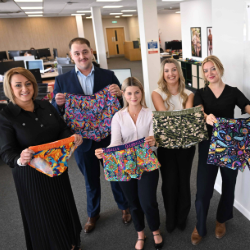BioFutures Symposium 2023
A launch event featuring a series of themed half-day sessions between Tuesday 4th July 2023, 13:15 (lunch/registration from 12:00) until Friday 7th July 2023, 14:00. Delegates are welcome to join part or all of the Symposium.
The
BioFutures Symposium 2023 is hosted by the BioFutures IDRT, one of seven
Northumbria University Interdisciplinary Research Themes (IDRTs).
BioFutures IDRT's ambition is to perform world leading
research in design-led innovation through biology-centred technology and
engineering. By combining design thinking with biotechnology, we seek to create
sustainable and socially responsible products and services that can benefit
society and the environment. Biotechnology is entering a new stage in its development,
leaving the laboratory, and entering the real world. This creates new
challenges and innovation opportunities to develop challenge-led solutions
through design thinking.Connect and collaborate
Through the BioFutures Symposium 2023, we would like to
connect educators, researchers, design practitioners, industrialists and
students from biology, engineering, environmental sciences, architecture,
fashion, innovation design, computer sciences and social sciences, to showcase
and discuss the potential for interdisciplinary collaboration. Contribution topics
Symposium Topics
The symposium will have sections covering the following
areas: wearable biosensors, biological fabrication of smart materials / novel
biomaterials, waste valorisation, biological interface materials, AI-designed
life, and design education for BioFuture, concluding with industry perspectives on BioFutures.
Can wearables be designed to provide real-time, continuous data for reliable healthcare monitoring?
Wearable devices such as smart watches have become popular for various applications such as heart rate monitoring, setting reminders to take pills, monitoring blood pressure continuously, and setting an emergency access point. These devices can be considered as well-being wearables. However, the pace of development and market penetration for the healthcare wearable devices capable of diagnosis and monitoring significantly lags behind the success of the well-being wearables.
New innovation designs, technological leap and novel device configurations are needed to deliver the wearables to transform healthcare management. Considering the facts of the changing demographics in an ageing society and the overarching stress in healthcare services, the impact of the next generation of healthcare wearables to the society will be significant.
In addition, these devices will be pivotal to provide quantitative healthcare assessment in challenging environments where conventional healthcare services cannot be offered. In this session, we seek contributions discussing new approaches which can lead to new healthcare management paradigms. This includes new detection technologies, new methods to better integrate wearables in daily life, data processing and fusion capabilities.
Can we grow everything?
"Can we grow everything?" is a thought-provoking question that highlights the potential for using biological manufacturing techniques to create a wide range of products. With recent advancements in biotechnology and synthetic biology, it is becoming increasingly possible to grow materials, such as textiles, plastics, and even construction materials, using biological processes.
Using biology as a manufacturing platform has several potential advantages, including reduced environmental impact, increased sustainability, and the ability to create complex materials and structures that are difficult to produce using traditional manufacturing techniques. For example, biologically produced materials could be grown using renewable resources, such as plant-based feedstocks, and could potentially be biodegradable or recyclable.
While there are still significant challenges to overcome, such as scaling up production and ensuring the safety and quality of biologically manufactured products, the potential benefits are promising. The future of manufacturing using biology could be transformative, leading to more sustainable and environmentally friendly production processes and a wide range of innovative new products. In this session, we seek the contribution from biologists, engineers, architects and designers on the topics of Engineered Living Materials, biodesign and fabrication for Future Materials, Sustainable construction materials, sustainable fashion and textile, bio-digital fabrication and circular economy.
Can waste biovalorisation help generate clean growth?
Waste biovalorisation refers to the use of biological processes to convert waste materials into value-added products such as biofuels, biochemicals, and bioplastics. Biovalorisation will contribute to clean growth by reducing the amount of waste that ends up in landfills or the environment, thereby reducing greenhouse gas emissions and other negative environmental impacts, conserving resources, and providing renewable alternatives to fossil fuels and other non-renewable materials.
This is critical for clean growth as it allows us to use waste as a resource to reduce environmental impacts and drive sustainable economic growth. In this session we seek the exploration of how the engineering of biology and bioprocess development can be used to deliver less carbon-intensive and more environmentally sustainable processes that contribute to ambitious net zero targets.
Biological Interface Material
Manufactured materials and surfaces are required to work alongside and interact with biological system to deliver a wide range of important functions across healthcare, medicine, electronics, materials, coatings and consumer goods.
In this session we will explore the question of how we design functional materials, polymers and surfaces to interface and interact with biological systems, to deliver a targeted effect or result. The role of the materials can be to enhance, stabilise or complement biological systems, or equally they can be designed to repel, change or destroy biological materials with which they interact. The scope of this sessions can include bioinspired structured surfaces, bio-compatible or bio-repellent surfaces, bio-composites, antimicrobial surfaces, stabilisation of biological systems (including vaccines), advanced drug delivery systems and more.
We invite contributions in the following areas, from across biology, chemistry, materials, engineering and physics. The topics include: Bio-compatible materials interfacing with biological materials; Surface and material design; Structured biomimetic surfaces; Bio-inspired, mimetic or integrated coatings and surfaces; Surface design for biological interaction; Advanced multifunctional coatings and materials; Bio-composites; Biocatalytic materials and surfaces; Advanced drug delivery systems from polymers and Polymer stabilisation of biological emulsions or solution (inc. RNA vaccines).
Can AI design life?
Advances in protein language models have allowed AI to implicitly “learn” properties that allow sequences to be folded alongside other embedded learning techniques for function prediction from primary sequences. We are now at the stage where AI offers varied routes to predicting biological outcomes from DNA sequences. However, AI has not yet been extensively used to design novel functions, despite the wealth of functionally annotated protein products at our fingertips.
Generative protein language models for biodesign represent a promising future with artificial proteins, pathways, or even whole organisms, with traits designed and optimised purely by AI as a realistic near-future goal. In this session, we seek to explore current technological limits and challenges, investigate new avenues and methodologies, and discuss broader issues arising from AI-designed life.
Design education for BioFutures
Bio Design is a new field of education which enable designers play a critical role in the future of biotechnology development. Bio Design education combines principles of biology and design to create innovative products and systems that are inspired by, or even directly derived from, living organisms.Bio Design education focuses on teaching students how to apply biomaterials, engineering biology techniques to create sustainable and ethical solutions to real-world problems.
This field involves a multidisciplinary approach that combines design thinking, biology, and engineering to create products and systems that can be used in various industries such as healthcare, energy, and manufacturing. Through Bio Design education, students learn how to work with biological materials and living systems, and how to consider the potential ethical and environmental impacts of their designs.
In this session, we seek your contribution to share ideas on new curriculum, pedagogies and real-life experiences of such programme, and the visions for the future.
Industry Perspectives on BioFutures
From an industrial perspective, Biofutures offer significant potential. The industrial sector sees Biofutures as a promising avenue through which to address sustainability challenges and reduce dependence on fossil fuels. By harnessing biological resources and processes, industries aim to transition towards a more environmentally friendly and sustainable model of production. Biofutures can contribute to mitigating climate change, reducing greenhouse gas emissions, and promoting a circular economy. During this session, we will explore the perspectives of businesses on future development in the bio-based technologies.
Poster contributions
The Symposium will feature a poster exhibition. You are invited to contribute a poster to the Symposium aligned to any of the above topics. This is an ideal opportunity to showcase your work and gain feedback from a multidisciplinary audience.
- If you wish to contribute a poster: Please design your poster in A0 portrait format ((1189 mm high x 841 mm wide) and refer to our poster design guidance; Submit a copy of your poster contribution here in advance of the Symposium; Bring a copy of your poster to the Symposium registration desk for the organising team to hang - unless you submitted your poster by the printing deadline of 27 June 12:00 in which case we will have arranged to print tjhis on your behalf. Please email researchsupport@northumbria.ac.uk for assistance or queries.
- Poster competition for Postgraduate Researchers. The 3 best PGR posters, as selected by the BioFutures Symposium academic team, will each win a £50 prize.
Event Schedule
VIEW THE SYMPOSIUM SCHEDULE
Symposium Leads
The Symposium will be opened and closed by our BioFutures IDRT leads:
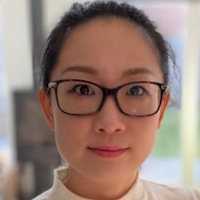 |
Dr Meng Zhang
Associate Professor | BioFutures IDRT lead
Department of Applied Sciences, Northumbria University, UK.
|
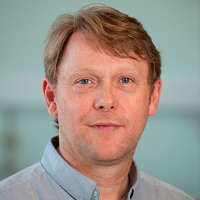 |
Professor Gary Black
Professor | BioFutures IDRT lead
Department of Applied Sciences, Northumbria University, UK.
|
Keynote and Invited Speakers
Each Symposium Topic has its own half-day session, consisting of presentations from Keynote and Invited Speakers, oral contributions from delegates, time for questions, networking, refreshment breaks and poster sessions.
Can wearables be designed to provide real-time, continuous data for reliable healthcare monitoring?
Tuesday 4th July 2023, 13:30-16:30
Chair: Professor Richard Fu
 |
Professor Henry Yi LI
Professor and Chair of Textile Science and Engineering
Department of Materials, University of Manchester, UK.
|
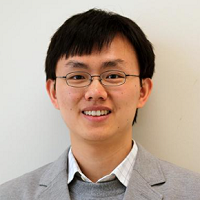 |
Professor Sheng Xu
Associate Professor
Department of NanoEngineering, University of California San Diego, USA.
|
Can we grow everything?
Wednesday 5th July 2023, 09:00-12:00
Chair: Dr Meng Zheng
 |
Professor Lynn Rothschild
Adjunct Professor of Molecular Biology, Cell Biology and Biochemistry
Brown University, USA.
|
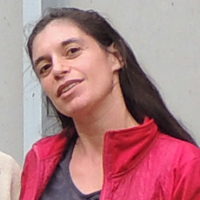 |
Dr Ilana Kolodkin
Adjunct Professor of Plant Pathology and Microbiology
Faculty of Agricultural, Food & Environment, The Hebrew University of Jerusalem, Israel.
|
Can waste biovalorisation help generate clean growth?
Wednesday 5th July 2023, 13:30-16:30
Chair: Professor Gary Black
 |
Dr Stephen Wallace
Senior Lecturer in Biotechnology
Centre for Engineering Biology, The University of Edinburgh, UK.
|
 |
Prof Chenyu Du
Professor of Chemical Engineering,
Department of Chemical Sciences, Huddersfield University, UK.
|
Biological Interface Materials
Thursday 6th July 2023, 09:00-12:00
Chairs: Dr Matthew Unthank and Dr Yunhong Jiang
 |
Professor Raechelle D’Sa
Professor in Antimicrobial Biomaterials
Department of Mechanical, Materials & Aerospace Engineering, University of Liverpool, UK.
|
 |
Professor Shery Huang
Professor of Bioengineering
Department of Engineering, Cambridge University, UK.
|
Can AI design Life?
Thursday 6th July 2023, 13:30-16:30
Chair: Dr Mathew Bashton
 |
Professor Burkhard Rost
Professor of Bioinformatics,TUM School of Computation, Information and Technology (CIT),
Technical University of Munich (TUM), Germany; Rostlab.
|
 |
Brian Hie
Stanford Science Fellow, Biochemistry
Stanford Medicine, Stanford University, USA
|
 |
Niya Stoimenova
PhD candidate
Faculty of Industrial Design Engineering, Delft University of Technology, Netherlands.
|
Mónica Moniz, Publisher & Programme Manager, Cambridge University Press & Assessment, will attend the poster/networking session on Thursday 6th July.
Design Education for BioFutures
Friday 7th July 2023, 09:00-11:25
Chair: Professor Martyn Dade-Robertson
Industry Perspectives on BioFutures
Friday 7th July 2023, 11:25-12:10
Chairs: Professor Gary Black & Dr Meng Zheng

Event information
The BioFutures Symposium is free to attend
Dates/times: The event starts on Tuesday 4th July 2023 at 13:15 (lunch/registration from 12:00), ending on Friday 7th July 2023 at 14:00. You are welcome to attend part or all of the Symposium.
Venue: Business and Law Building, Northumbria University, Falconar Street, Newcastle-upon-Tyne, NE2 1UY. For venue information and location, you may wish to refer to our City Campus Map (building number 5) - AccessAble Guide - Google map location - What3Words location.
BioFutures Registration Form
The Symposium is free to attend. As there is a maximum limit on attendees, please register below as soon as possible to ensure your place.














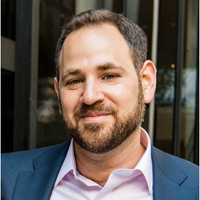





.png?modified=20250630105204)





